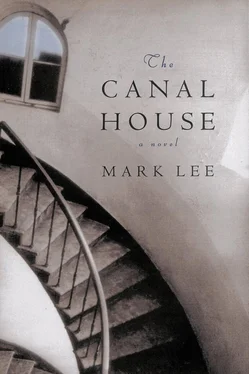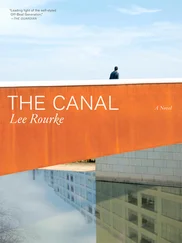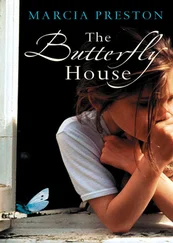Back in California, my uncle Carl and I would spend an entire afternoon wandering around the stubble of his cornfield with our arthritic golden retriever. If we were lucky, the dog flushed five or six pheasants, and we killed two of them. The shoot at Richard’s estate had a larger sense of order. Quinn muttered commands into his walkie-talkie and I heard a distant clicking sound. The beaters were on the hill above us, tapping sticks together as they drove the birds toward the edge of the cliff.
Muldoon handed me a pair of ear defenders. He loaded both shotguns and showed me how to exchange them. I was supposed to reach with my right hand for the new gun while handing off the empty weapon with my left. The motion reminded me of switching cameras and I learned the routine quickly. When I glanced down the line, I saw that Billy was fumbling with Richard’s guns.
Muldoon jerked his head toward Billy. “I don’t know why a man needs a bodyguard in the country. The only thing dyin’ today are the birds.”
“Are they coming off that hill?”
“Aye. The birds live down there.” Muldoon pointed to a thicket of larch and birch trees directly behind us. “But Mr. Quinn feeds ’em up there.” He pointed to the hill. “When the lads come through, the birds fly off that rise, tryin’ to get back to their pen. Put Big Ben in the sky and shoot between ten and two o’clock.” He gestured to the left and right, establishing the firing perimeters. “Whatever you do, don’t shoot behind us.”
“When I used to hunt in America, we only shot at the male birds. What’s the rule here?”
“Shoot what you want, sir.”
“What’s your rule, Mr. Muldoon?”
The old man gave me a sideways glance. He looked cautious, not sure if he could trust me. “I don’t shoot the hens myself. It’s more sporting.”
“I’ll try for the males, but no promises. Sometimes they rise high and fast.”
Muldoon chuckled and took out a pack of cigarettes. “Oh, I wouldn’t worry about that, sir. Not with this lot.”
The clicking sound got louder and we could hear the beaters calling to each other. Behind us, Quinn was chanting into his radio. “Tell them not to get ahead of each other! Stay in the line!”
The cock pheasants began to cackle loudly as the beaters got closer. The birds fluttered up a few feet, then disappeared down into the blackthorn. I felt as if the entire woodland was gathering its strength for one convulsive effort.
A hen flew out of the woods and headed toward the birches. Malcolm fired his shotgun twice and missed both times. He swore and shouted to his loader as a cock pheasant appeared and glided toward us. His red wattles were a precise point of color against the gray sky.
Richard fired and the pellets made a slapping sound as they hit the pheasant’s wing. The bird fell quickly and hit the grass with a dull thump like a sack of grain. “Guard the sides! Guard the sides!” Quinn shouted to the beaters.
The birds came over the rise straight at us. I got lucky and brought down two males in a row, took the spare gun from Muldoon, and fired again. The other men were shooting at everything that darted out of the brush. The pheasants dropped before us, the wounded ones twisting and flopping on the grass. Behind us, the dogs strained at their leashes, but the women held them tight.
I saw a white duck come toward us and took my finger off the trigger, but George Riverton fired from a short distance and blew off the bird’s left wing. I glanced at Muldoon. Ignoring me, he loaded the second shotgun. Another duck flew out of the woods, then four more. They were flying so low that it was impossible to miss them. Richard pointed his shotgun like a man in a firing squad and hit two in a row.
The gamekeeper blew his whistle and everyone lowered their guns. Bluish-gray smoke drifted through the air and I smelled the harsh, sulfur odor of gunpowder. The women went forward with their dogs to get the fallen birds. A white duck lay about ten feet in front of us. Its blood glistened on the grass like little red jewels.
I pulled off the ear defenders and turned to Muldoon. “What the hell is that?”
He gave me a sly smile. “Looks like a duck, Mr. Bettencourt. Haven’t you ever seen a duck before?”
“That one’s straight from the farmyard. What’s it doing in the woods?”
Muldoon glanced around him, then lowered his voice. “Mr. Quinn trucked a cage of ducks up here and mixed them with the pheasants. They don’t know how to fly that well so they’re easy to shoot.”
I looked down the line and saw Malcolm and George congratulating each other. Richard stood alone, pissing on a beech tree.
“They’re not country people,” Muldoon whispered. “Weren’t raised here. Don’t know how to shoot. But they want to kill something, so Quinn fixes it that way.”
“Do they know it’s not a wild duck?”
“Maybe. Maybe not. Probably don’t care.”
THERE WERE FOUR different drives that morning before we stopped in a clearing for lunch. The mother of one of the dog ladies had prepared the meal and it was good country food: barley soup and home-baked bread, apple turnovers and strong tea. Now that George and Malcolm knew that I wasn’t going to take their photograph, everyone relaxed. I had thought that pheasant shooting was another way for Richard to impress his friends, but I gradually began to understand what was really going on. For George and Malcolm, joining a hunt could hurt their political careers. They probably felt like Richard had fixed them up with a prostitute or taken them to a strip club in Soho. Now there was a secret between them, and secrets implied power and obligation.
There were two more drives that afternoon and Quinn mixed ducks into both of them. I didn’t feel compassionate about ducks, but I didn’t want to shoot them. The pheasants were used to the woods and they were good fliers, but the ducks didn’t have a chance. It felt as fake as a news photographer posing a shot.
It started drizzling on the last drive and then it was raining hard by the time the dog ladies hung up the dead birds in the game cart. My shoulder hurt from the recoil and I wanted a drink. When I gave twenty pounds to Muldoon, he smiled and touched his cap. “A pleasure to load for you, Mr. Bettencourt. You can shoot.” It was the compliment I’d been searching for all day, but it didn’t make me feel any better.
Everyone got into the Land Rover and Billy drove us back to the house. The windshield wipers slapped back and forth as the Rover skidded a little on the muddy road. Malcolm and George stared out the windows, but Richard kept glancing at me. I wondered if he was annoyed because I didn’t shoot at every bird that flew out of the woods.
Billy parked a few feet away from the front door, and Wallace came out with umbrellas. Richard touched my arm and we waited in the car while the other three men went inside.
“Having a good time, Nicky?”
“It’s nice to get out of London.”
“I was telling George about you last night. You really are a talented photographer. Have you ever thought about putting out a book of your best work?”
“Sure.”
“I have some friends in publishing. Assemble a portfolio, then give me a call at the bank when we get back to London.”
“Thanks, Richard. I’ll think it over.”
Raindrops exploded on the ground and rattled on the roof of the Land Rover. A favor had been offered and I waited to see what it was going to cost.
“I’ve told Miss Hedges to arrange the place cards for supper. You’re going to be sitting next to Julia again.”
“Okay.”
“Julia likes you, Nicky. You’re both in the same kind of business, really, dealing with war and disaster. If you stay in it too long, you get cynical and burned out. Don’t you agree?”
Читать дальше












